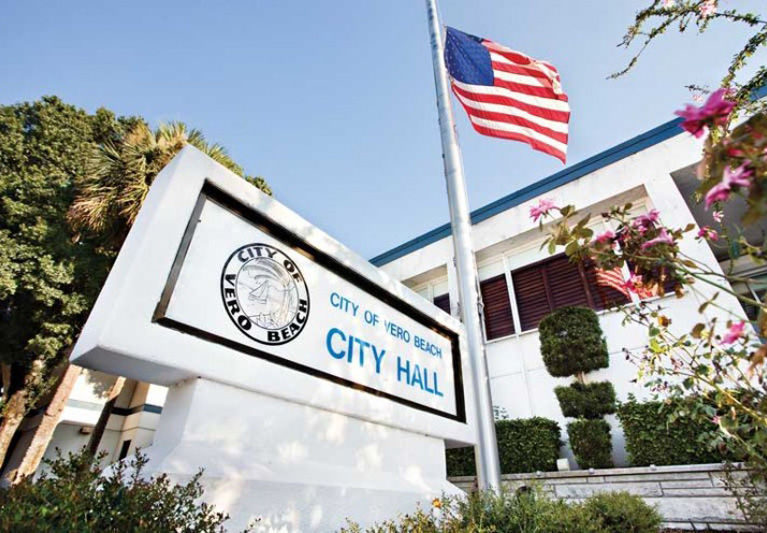
VERO BEACH — The Vero Beach City Council started its meeting Thursday evening with a budget that would increase the tax rate by 38 percent over the current year’s rate, but by cutting about $500,000 from the budget, three out of five members ended up voting on a 24 percent tax hike instead.
Vice Mayor Jay Kramer voted in the nays because, he said, money should have been taken out of reserves, and because he’s been against a policy change made in January freezing the city’s general employee defined benefit pension plan and launching a defined contribution plan.
For the next dozen years or so, the change will cost more, but the trade-off is the long-term shifting of market risk from the taxpayers to the individual employee.
The plan to take more than $1 million out of the city’s reserve funds was recommended last month by the city’s Finance Commission, but the majority of the City Council members agreed that they could not take such a leap without a policy being in place about when and how to use reserves for recurring expenditures, as opposed to one-time emergency items.
Councilwoman Pilar Turner has been consistently opposed to increases in spending and as such voted against raising the property tax rate.
Earlier in the meeting, Mayor Dick Winger proposed cutting one of two proposed police officer positions to save $52,000, which is the amount of starting salary plus health and pension benefits.
To get down to the 2.38 mills that Winger proffered, a planned $450,000 for road paving was on the chopping block, as was $45,000 for dune restoration.
Councilwoman Amelia Graves seconded Winger’s plan, but then Councilman Randy Old offered an amendment. Old said he wanted to keep the police officer, but find something else to cut.
The solution came in the elimination of a planned additional part-time attorney for six months, and the planned addition of a part-time parking specialist to enforce the city’s parking regulations on Ocean Drive and on 14th Avenue on Saturdays.
The council has one final budget hearing on Sept. 15, at which the council can cut the budget and decrease the millage rate, but it cannot increase the budget or hike the millage rate.
Should the current proposed millage rate of 2.38 stand, property owners’ homes will be assessed $2.38 for every $1,000 of taxable property value.
Winger said the 2.38 rate would mean roughly a $100 per year increase for a homeowner with $300,000 in taxable value after homestead exemption.
“This is very painful for me, I didn’t want to be where we are,” Winger said.
Winger and Graves are running for re-election in November and will likely be held accountable for raising taxes, as they face three challengers: former councilman Brian Heady, newcomer Laura Moss and Harry Howle, who ran last year and filed as a late entry on Thursday.



